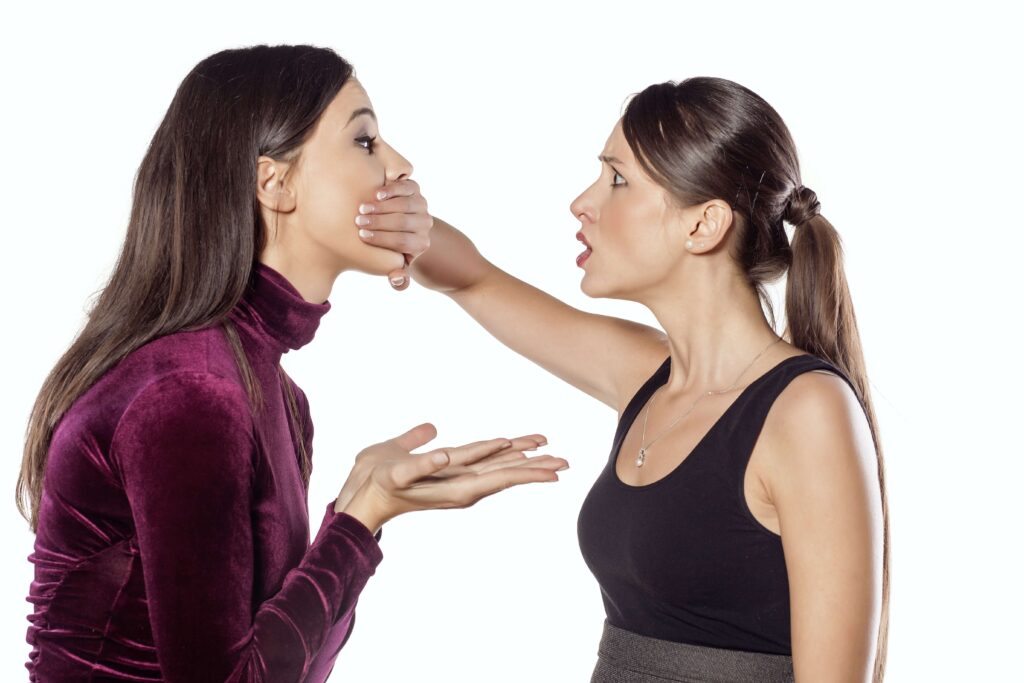Listening is probably our most important, but most underutilized communication skill. Part of the problem is that people are selfish and would rather be the one talking than listening. However, I also think people are bad listeners because nowhere along the line as we’re growing up, does anyone teach us how to be good listeners. We’re taught to speak, read, and write, but short of “Shut up and Listen,” we don’t get any listening training at home or in school.
Are you guilty of being a bad listener? If you have even one of these bad habits, you might be. Luckily, I have some solutions for you.
1. Interrupting
When you interrupt, either to complete a sentence for someone or to share your own thoughts, you’re basically telling the other person that what they were trying to say is totally unimportant to you. Resist the urge. Bite your tongue if you have to and let the other person have his or her say.
2. Stage Hogging
If you dominate conversations, interrupt to take over, or constantly change the subject to talk about you and your interests, you’re a stage hog. Stage hogging can also be more subtle, coming in the form of “The Bigger Fish Syndrome.” This occurs when someone else tells a story and you just can’t let him or her have the moment. The fish you caught is bigger. The car wreck you had was worse. Your boss is more demanding. You get the picture. So how do you stop being a stage hog? Start by taking a genuine interest in others and REALLY listening to them. Keep your own thoughts and experiences to yourself because when you’re listening, they’re not relevant and others don’t care. When they’re speaking, all they care about is sharing their own thoughts and experiences.
3. Pseudolistening
Pseudolistening is basically pretending to listen. You’re smiling, nodding, saying, “uh huh,” in all the right places, but your brain is still in this morning’s meeting or thinking about what you have to do this afternoon.
If you make a commitment to listen, then you should listen. If you don’t want to or can’t listen now, then be honest and say so. I’d rather have people tell me, “Now’s not a good time, can we talk later?,” than lie to me and say they’re listening when they’re not.
4. Insensitive listening
Insensitive listener’s focus on facts, not feelings. They only hear factual elements others share and ignore verbal or nonverbal expression of emotion. As a result, they’re usually totally oblivious to what others are REALLY trying to communicate and their responses show it.
When a friend comes to you with a devastated look on his face, eyes obviously red from crying, and his voice is breaking when he says, “My grandpa just passed away,” he probably won’t appreciate you saying, “Well he was really old,” or “Everyone’s gotta go sometime!” Whether grandpa was old or not is irrelevant. What’s important is to show your friend that you see he’s upset. A better response would be, “I can see how upset you are. I’m sorry for your loss.”
5. Defensive listening
Defensive listening occurs when someone else brings up something you’re sensitive too and you react in a way that is out of proportion to the person’s comment. Think about the word “room” to a teenager. A parent says, “I want to talk about your room,” and the teen immediately goes into a tirade trying to justify why the room is a mess, when in fact, the parent may have wanted to discuss repainting or redecorating.
Defensive listening can also occur when you’re sensitive about a specific person. For example, a particularly critical coworker’s suggestions might cause you to be more defensive than if the same information came from someone else.
Try not to allow defensiveness to keep you from hearing something you need or might want to hear. If information is coming from someone you dislike, imagine it’s coming from a friend before you evaluate the info. Additionally, try not to hone in on a single word and let that override the entire message you hear.
6. Distracted listening
Your mouth says, “Yes I have time to talk,” but you continue to read e-mail, answer phone calls, look at your calendar, etc. If you make a commitment to a conversation, give the other party your undivided attention. Don’t complete other tasks. If your other tasks are more important than the conversation at hand, you could say,
“I want to talk with you about the report. Can we discuss it at 2 pm when I can give you my undivided attention? Right now I have to call these last three clients back to let them know their orders will be delayed.”
These are just some of the bad listening habits we might have developed, but they’re probably some of the most common ones. Give the gift of great listening to those around you by eliminating just one of these habits this week. It’s probably the most important gift you can ever give.
For more information about improving your listening and other communication skills, check out my book, Practical Communication: 25 Tips, Tools, and Techniques for Getting Along and Getting Things Done or my 3-minute-a-day, Communication Skills for Career Success video program. You can also check out two of my previous posts on listening: Break Down Your Listening Barriers in Five Easy Steps and The High Cost of Poor Listening.







